Unlocking the potential of the black soldier fly manure
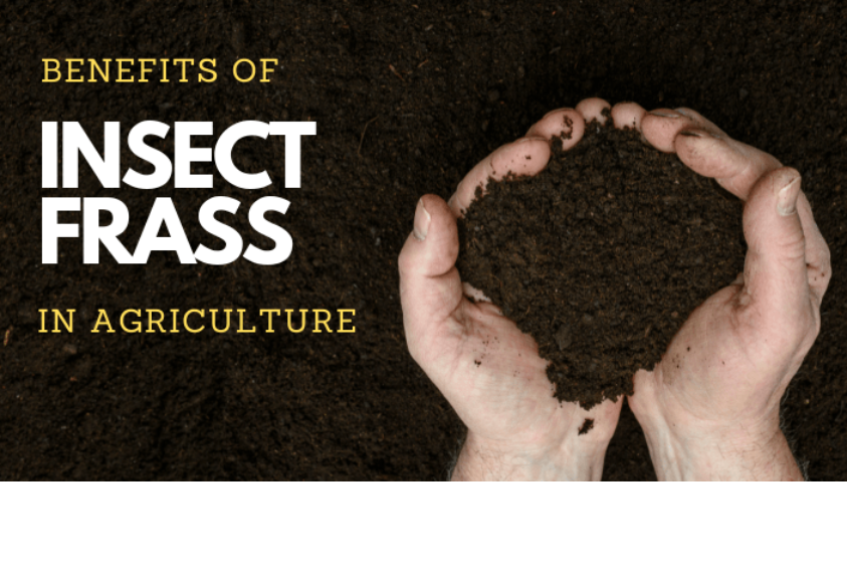
Unleashing the Potential of Black Soldier Fly Frass: A Renewable Biofuel and Agricultural Amendment
Frass, the amalgamation of excrements from farmed insects and their feeding substrate, is emerging as a versatile resource with the potential to yield bio-methane, a renewable biofuel that can revolutionize energy sources in insect production facilities, particularly breeding centers. Defined by the European Commission Regulation (EU) 2021/1925, frass encompasses insect excrements, feeding substrate, insect parts, and limited amounts of deceased insects.
Black Soldier Fly larvae fed on various materials

Recent research conducted by Wedwitschka et al. (2023) explored the bioenergy potential of frass from Black Soldier Fly (BSF) larvae fed on various materials. Six distinct frass samples were analyzed, each derived from larvae fed on corn silage (CS), brewer’s spent grain (BS), thin stillage from bioethanol production (ST), aquatic plants (water-seeds) of the Elodea genus (EL), wheat bran (BR), and frass from a pilot plant (IF_PP) fed with cereal grains.
The highest methane observed methane yield
The specific methane yield (SMY) of these frass samples demonstrated a range from 201 to 287 mL/g VS, comparable to residues from traditional livestock farming such as cattle manure, pig manure, and chicken manure. Notably, the highest methane yield was observed in frass from BSF larvae fed on water-seeds, followed by cereal grains, corn silage, brewer’s spent grain, and wheat bran.
Methane yield 140 m3/ton
In terms of fresh matter, BSF larvae frass (cereal grains fed) achieved a specific methane yield of approximately 140 m3/ton, surpassing the common biogas substrate corn silage (110 m3/t). The significance of this lies in the potential substitution of corn silage, a prevalent biogas substrate in Germany, during periods of low supply, such as the recent drought years of 2021 and 2022.
Alternative agricultural residue
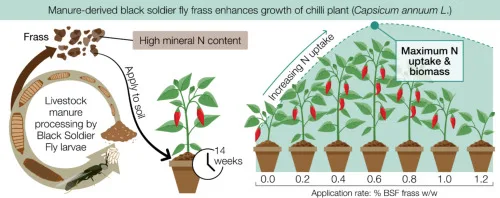
Corn silage scarcity during these years affected energy production and profitability for biogas plants in certain regions of Germany, as reserves were prioritized for dairy farming and individual biogas plants. The study suggests that BSF frass could serve as an alternative agricultural residue, mitigating the demand for corn silage in existing biogas plants and ensuring a stable energy supply.
Utilization of insect frass as a soil amendment
Current regulations require exposure to 70 degrees Celsius for 1 hour. Traditional methods like heating, pelleting, or extrusion, however, demand considerable energy input. To address this, Wedwitschka et al. propose exploring the efficacy of a thermophilic (~38 Celsius) digester system, potentially offering a more energy-efficient solution for sanitizing BSF frass. This approach, with or without an additional composting stage, could pave the way for the safe and sustainable use of insect frass in agricultural applications.
The research by Wedwitschka et al. showcases the untapped potential of BSF frass as a renewable biofuel and a valuable substitute for traditional biogas substrates. As we explore sustainable alternatives in energy production and agriculture, the Black Soldier Fly, with its transformative frass, emerges as a key player in the journey towards a greener and more efficient future.
For more information about:
- Insect Bioconversion of Waste, please contact us at the Insect school. https://www.insectschool.com/
- Turnkey Insect Farms – https://www.insectengineers.com/bsfturnkey/production
- If you would like to book BSF industry keynote speaker Bob Holtermans for your event – https://www.insectengineers.com/about-us/speaker-bobholtermans

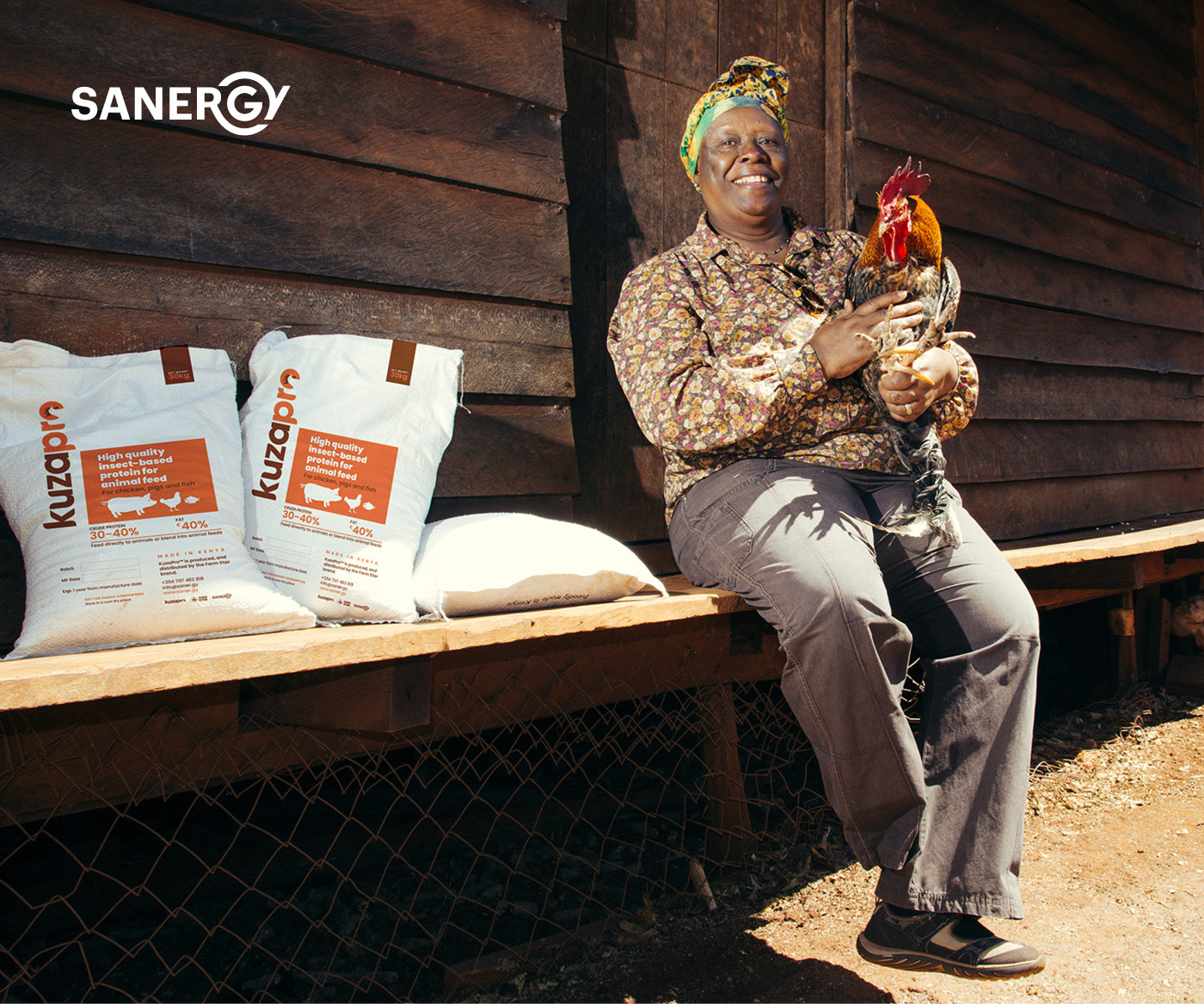
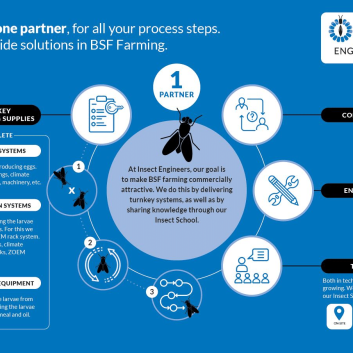
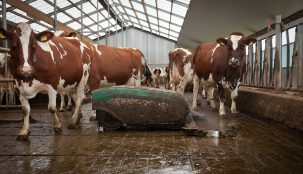
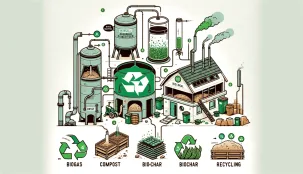
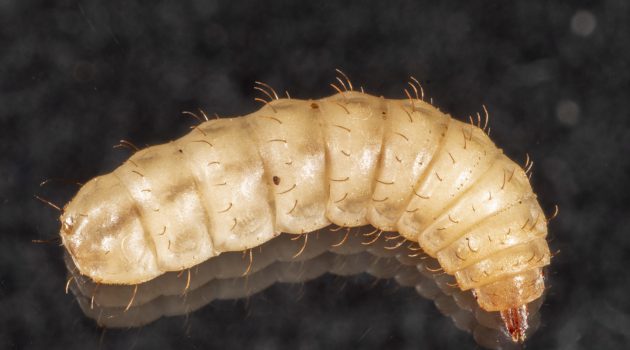
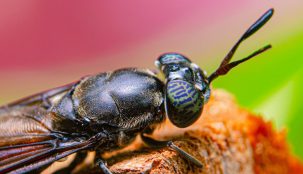
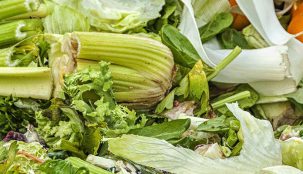
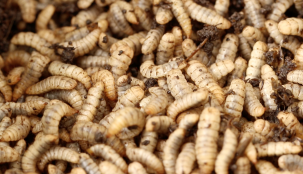


Leave a Reply